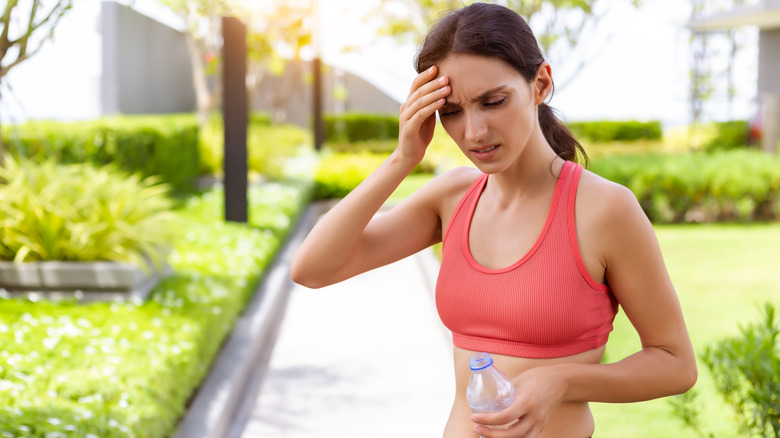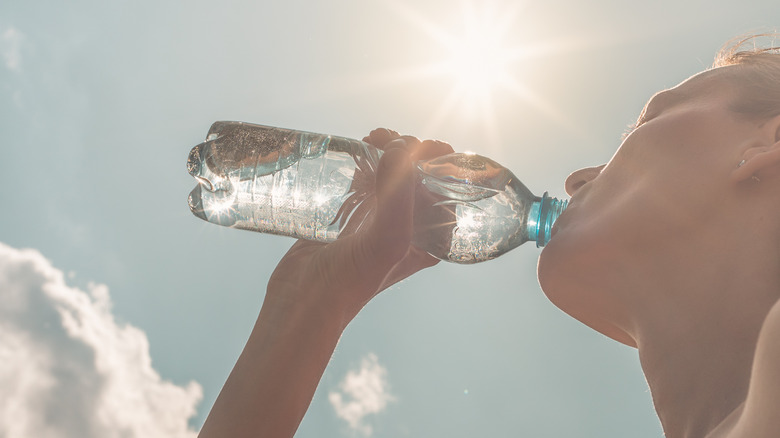How Heat Exhaustion Impacts Your Body
You know it's dangerous to run in the summer, but you might figure you can get that quick run in during lunchtime — you forgot your sports drink, but your morning Starbucks can keep you going. As you head out into the hot sun, your body begins to sweat — a lot. You suddenly feel a leg cramp just before your halfway point, but you ignore it because you need to get back. Then, you get a headache and feel dizzy. Your breathing becomes shallow and rapid, even after you've slowed to a walk. Now you feel a cold sweat coming on. According to the Cleveland Clinic, these are common symptoms of heat exhaustion.
When it's too hot outside to work out, you become at risk of heat exhaustion. As the temperatures rise, particularly when it's humid, your body tries to cool itself down by sweating. If the body is already dehydrated, it can't do its job of cooling you down. The body overheats, and you can suffer from dizziness, a headache, or muscle cramps. In severe cases, you may even pass out. Ignoring the symptoms of heat exhaustion can be fatal, according to the Cleveland Clinic.
How to treat and prevent heat exhaustion
If you or someone else feels the symptoms of heat exhaustion, stop exercising and find somewhere in the shade to sit or lie down, according to the Cleveland Clinic. Apply a cool, wet rag to your forehead and back of your neck to help cool down your skin. Drink fluids slowly, like water or a sports drink, and avoid alcohol and caffeine. Continue this cooldown until your body temperature cools to 101-102 degrees Fahrenheit, according to the Centers for Disease Control and Prevention. Be sure to seek medical assistance to ensure your vital signs are stable.
If you exercise or work during the hottest part of the day, be sure to wear loose clothing that allows air to pass through easily (per Cleveland Clinic). Take breaks often, seek out the shade, and be sure to lather on the sunscreen, as sunburns can affect your cooling system. To stay hydrated, drink non-alcoholic fluids, such as fruit juice or a sports drink, and don't wait until you're thirsty to drink, according to the Centers for Disease Control and Prevention. Avoid salt tablets as well — excessive salt can force your kidneys to get rid of the excess sodium, causing you to sweat more, according to Healthline. Only take salt tablets if they're prescribed by your doctor.


